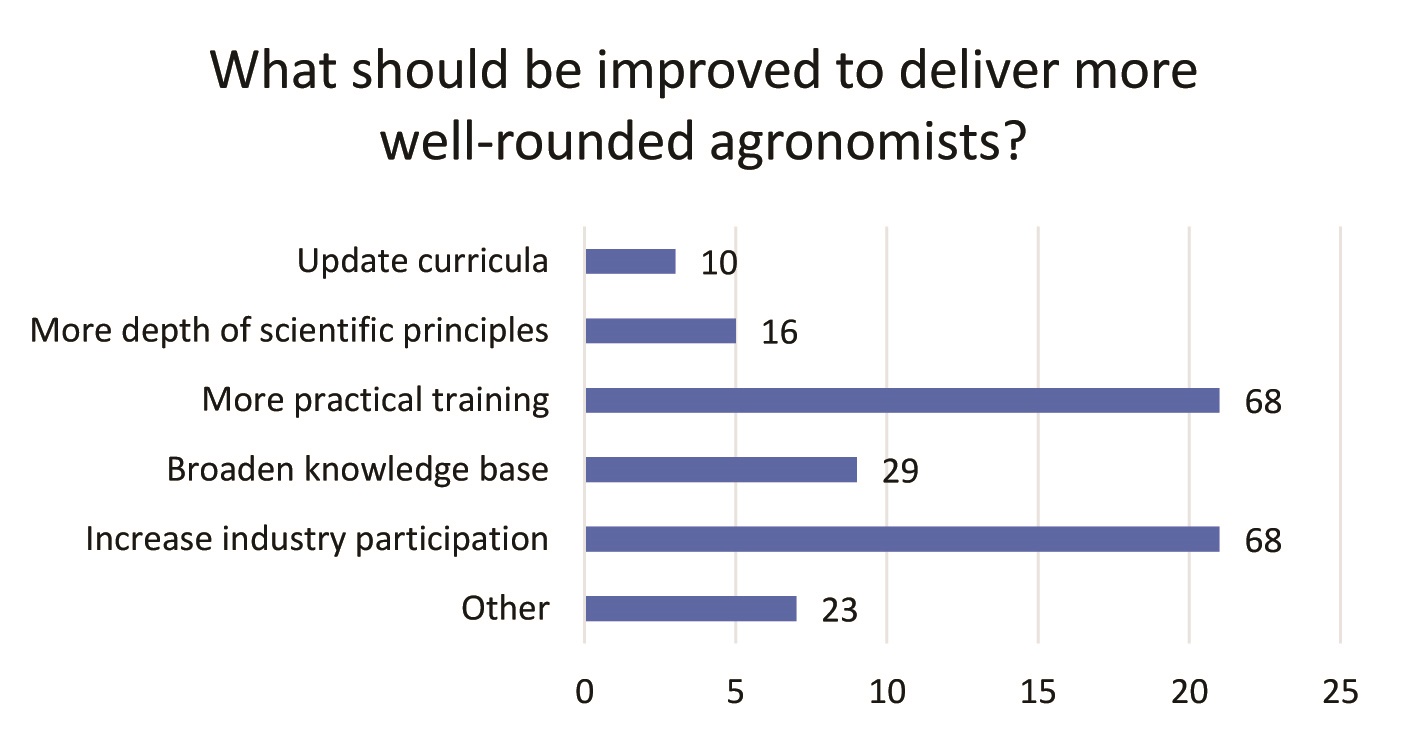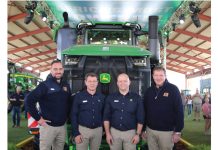A workshop was held on 18 August to bring local grain role-players together with an aim of getting an overview of the current status of agronomy-related research, brainstorming the future of agronomic research, and exploring collaborative opportunities. The alignment of research and training needs between the industry and the research community was explored.
Leading up to the discussions, Grain SA released a short questionnaire to gauge the opinions of participants on agronomy research and capacity. The results provided the day with a baseline for further discussions and highlighted some key trends.
The day consisted of three discussion sessions with the aim of opening the dialogue between the various role-players and getting input on the way forward.
Challenges and opportunities for agronomic research
Despite pockets of excellent research already taking place, there is a need to significantly increase agronomy research and capacity. A key challenge faced by producers is the reliance on inputs, specifically on fertiliser. The dramatic increase in fertiliser costs has led to several agronomic questions. These include how to improve overall fertiliser use efficiency and how South African producers compare internationally.
Further discussions in this session brought up questions on what the impact of climate change will be on production and particularly how producers can ‘de-risk’ their operations, such as through crop rotations. Diversifying production systems through crop rotations and livestock integration, can help spread the risk of adverse effects such as climate events, diseases and economics. The impact of seasonal rainfall must also be investigated (for example late rains and floods) to allow producers to better manage climate risks. Grain producers are certainly in favour of more practical research, which needs to be combined with economic analyses to assist with decision-making.
Current capacity challenges
The survey highlighted that there is a need to increase the number of well-rounded agronomists being trained. Figure 1 shows that this should be addressed by incorporating more practical training as well as further industry participation.

Universities are currently the main facilities producing trained agronomists. In order to increase practical training at these institutions, significant investments need to be made into infrastructure (equipment, experimental farms) and capacity (technical personnel, postdoctoral fellows). The partnerships between research and industry are critical and investment from industry can be used to leverage further investment by universities. Other key enablers could be industry seconding trained personnel to universities to support research and capacity development, as well as increasing bursaries for agronomy students.
Exploring agronomy for the future
The sessions started with the question: ‘What does the future agronomist look like?’ Already, agronomy is an applied discipline and, given the latest technological developments, it needs to be integrated with data sciences, mathematics, and engineering – in addition to traditional biological sciences. Discussions on how the training of future agronomists can be improved and the role that industry plays in training, will continue.
In the short term, practical training of students (PhD, MSc) can be improved through collaboration with farming groupings. In South Africa, there are a number of study groups where producers and researchers are working together, and these systems provide an ideal environment for students to obtain more practical experience and get involved with industry-driven research.
In the long term, agronomy needs to focus more on systems research. Agronomy research and training need to look more broadly, not only at crop systems, but also at management systems. The need for more independent agronomic services was also highlighted. Agronomy is key to providing production support to industry and, therefore, both specialist and general agronomists are needed in the field and at research institutions.
Conclusion
Coordination and collaboration are key to addressing agronomy research and capacity challenges. The initial survey revealed that there is a keen willingness to collaborate, which was echoed during the meeting. This workshop was an initial step in engaging with research and industry to restart the dialogue on working together to address common challenges in agronomy.



















